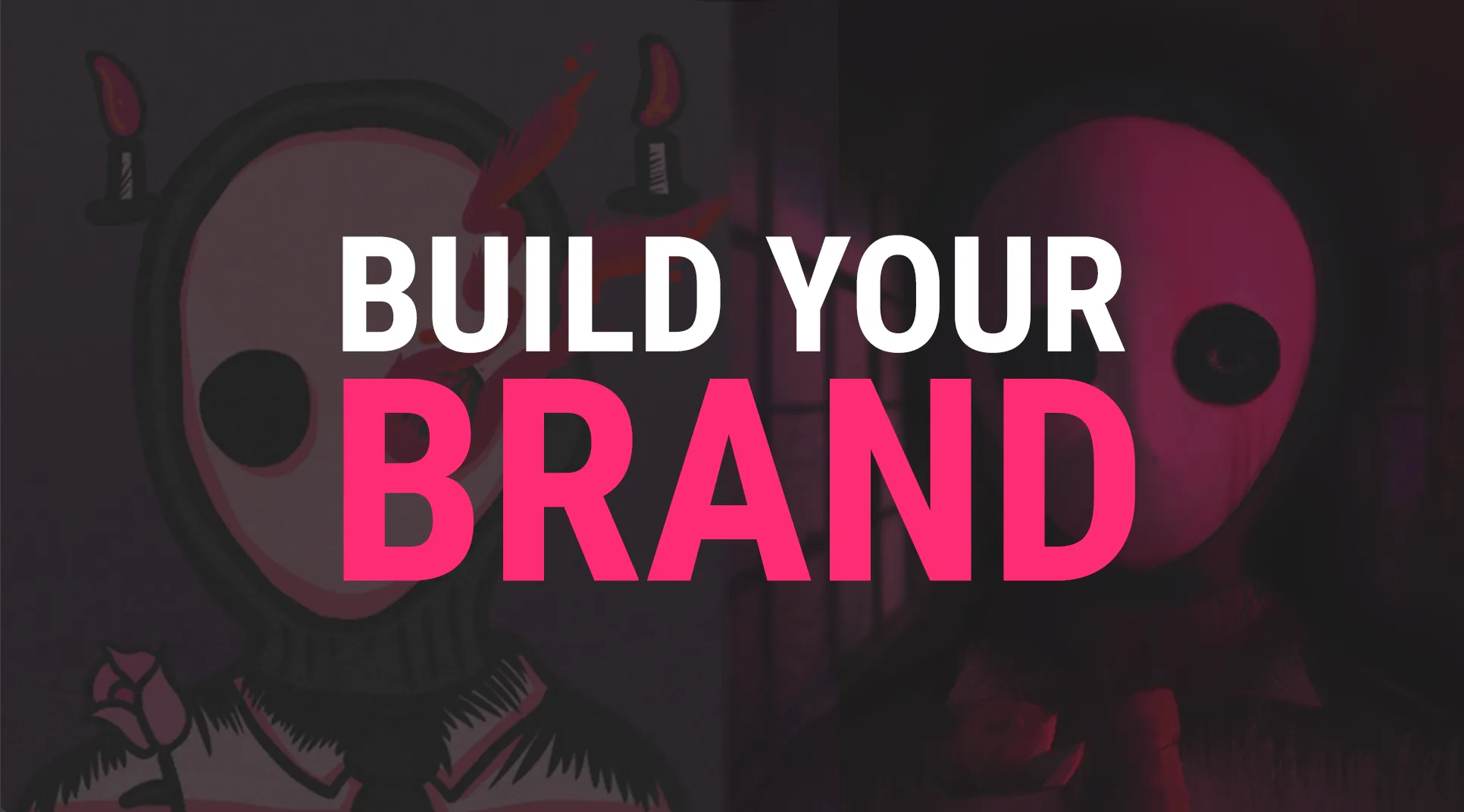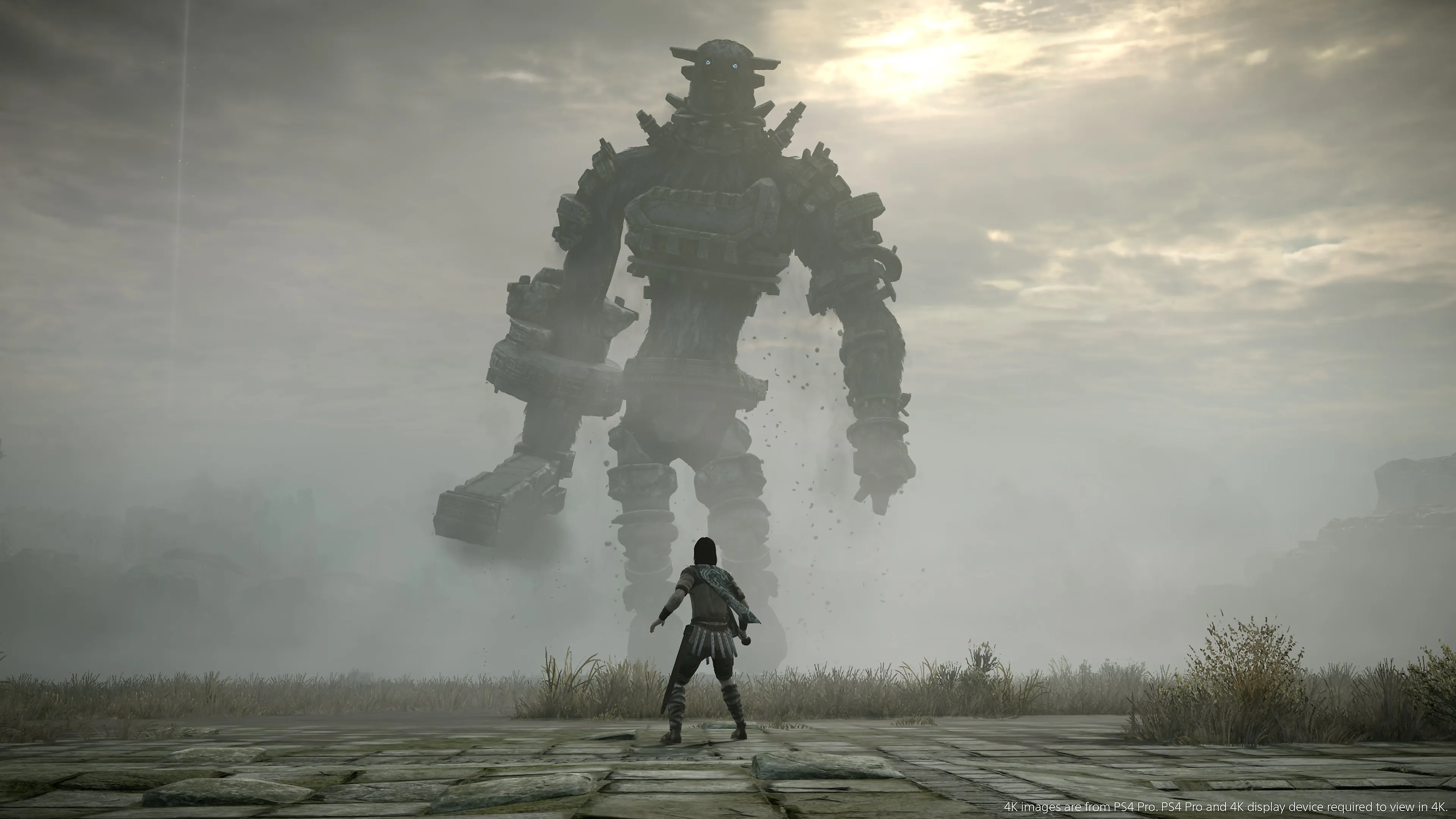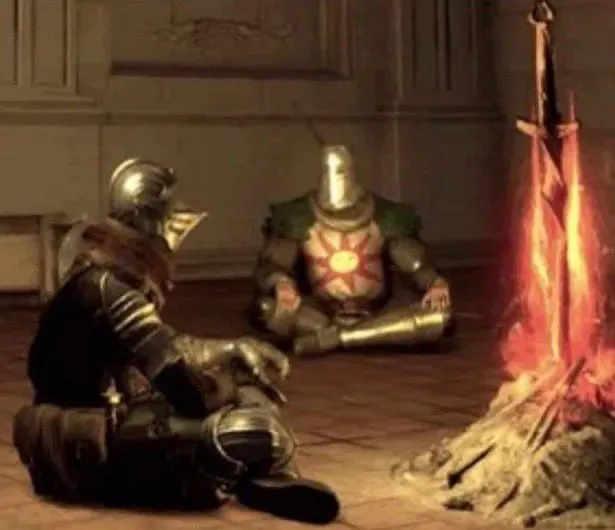Building A Brand
16 min read

One of the most powerful forms of leverage, that lasts a lifetime, is branding. Whether business or personal branding the concepts apply to both. Branding is the association between entity and things you want to relate to. Whether you're an entrepreneur or a person sitting at your desk at 2 am contemplating 'How do I make content', 'I want to express how I feel', 'I need to share my thoughts with the world in hopes someone, anyone, can find me, relate to me in this desolate sphere we call home' then you're in the right place!
Foreword
Branding, whether personal or business, is such a fascinating thing. We latch onto these identities that affect our lives in an instant. From wearing a piece of clothing that gives us more confidence to uncovering a person’s life that inspires you to be better, brands are truly remarkable. The personal gain from your brand has immeasurable benefits that can only be seen through action. It’s difficult to explain until you give it a hard-felt attempt. In this article, I’ll explain how to build a brand, the benefits it has and why you should invest in your own and your business. I hope you find as much value in this as I did :)
Business Branding
“It takes 20 years to build a reputation and five years to ruin it. If you think about that you’ll do things differently.” - Warren Buffet.
Vocabulary
Branding is the deliberate pairing of things through an outcome, e.g. Coca-Cola is associated with a tasty drink therefore when I want a tasty drink I think of Coca-Cola. If I make a luxury clothing brand and pay famous people who look exceptionally beautiful physically, maybe a model or famous person, then people will associate that brand with high status (in the field I’m targetting) and buy the product to feel that association intertwine with their identity. This is why designer brands are so everlasting.
Advertisement is the attention drawn to x — people knowing of the thing. Every piece of attention correlates with the brand, either good or bad.
How To Make A Strong Brand
- You start with a brand that means nothing
- Then you pair that brand with something or someone your ideal customers like.
- Your brand starts to mean the “thing the customer likes” to them.
- Then, they want to associate themselves with the thing that they like.
- They can’t buy that thing but they can buy that identity from the brand’s association.
- Then, they buy the shirt with the logo that means that to them.
- They wear it bc that the association of the thing they want to feel is emitted from the brand’s shirt, leading to their identity being a part of theirs.
People buy the strong brand vs weak brand product because they buy the elements you’ve deliberately paired with the brand, which they identify with.
The point of building a brand is:
- to change a customer’s behaviour
- in your favour
- when they see it with a product
Good branding drives premium pricing and improves advertising. This is why Kanye West could do a Superbowl commercial from his phone in a selfie video and have a giant upside.
Good branding also drives customer loyalty. If they like the things you do and the association you make they’ll continue to buy from you for life. A perfect example is Apple. People are willing to drop any amount of money on any new product as soon as it is released because of the reputation the brand has associated with it.
Creating A Brand
To start a brand, we have to know what we should pair to attract ideal customers. Just as much as what we should avoid pairing it with that’ll cause the loss of customers.
A brand in essence is simply the deliberate pairing of things bundled together. If you scattered all the things is there even a brand?
However, the biggest mistake brands make is creating too much distance between pairings. Randomly associating, e.g. between politics and tech, without bridging them together, ultimately hurting the brand. Usually, it’s because they’re so hard to make the associations work together. Good branding happens on purpose. Think about curating a garden, you want some flowers to grow, and to pull out the weeds. You need both. Add good. Remove bad.
“Even if you say you’re premium, but people think your thing sucks, that “suck” will stick.” - Warren Buffet.
Branding has 3 metrics:
- Influence: How likely it changes someone’s behaviour.
- Direction: Whether the change is the one you wanted.
- Reach: How many people it changes it for.
New pairings lose the current audience but can gain a new audience. You simply need to make an educated bet on whether the pairing will help the brand move forward or destroy it.
Personal Brand
“People don’t fall in love with cooperations, they fall in love with personalities” - Yo Santosa
A personal brand is the irrational emotional connection you have to a personality. Whether it’s someone going through hardship in a TV show or a close friend, you care deeply about them because of the things they do and how you connect with them. The key point here is connection. And so everything to do with personal brand revolves around how can I connect better with people while being true to myself. Do I have a strong irrational emotional connection to this person, a sense of knowing this person, of their story, that I can relate and identify with them so much so I’m willing to wait in line for them or see a movie with them in it or read their content?
With every interaction, people are forming opinions about you. It’s vital to be mindful of how people perceive you. Are you aligned with your actions or is there something you need to improve?
Why
Before starting, I want to explain why I believe having a personal brand in the 21st century is a remarkable tool to leverage. And for this, I’ll give you a brief anecdote. I started with absolutely nothing in my career. I finished high school, but didn’t go to university because I found it to be inefficient (if you want to learn, go do it is my belief — it’s simply faster for generalists that deep dive into the lowest level, like myself), I didn’t know what to do with seemingly infinite possibilities. So, I decided to take a bar job and then got a bar job simultaneously. During this time I knew 9-5s weren’t the best use of my time for the reward I would receive ($20-$25 AUD p/h). And so, I thought about “what can I use to leverage my time most effectively” where my investment would pay dividends over the long run.
This stemmed into automation and down into the investing rabbit hole in crypto (oh boy). This was my first taste of leverage. Software came next, but I wasn’t any good. I had no background! I started to read and essentials and after a year of gruelling work, I decided to start a personal website. I documented my entire career, each month, from 2021 to now (and still going). I started to write articles on what I was learning, and surprisingly I was learning faster and identifying the gaps in my knowledge. Writing is the conscious act of thinking. If you cannot think straight, writing will follow suit. And so, if you can sequentially explain a topic in-depth with no errors then you’ve truly mastered the topic. Another beautiful benefit comes from retrieval of information. When I go back to look at the article I wrote I remember the exact few minutes/seconds of doing it, how I felt at the time, and what I was doing at that point in life, and it all consolidates in my mind as if I’m watching a movie in my imagination. It’s truly remarkable. This act of recollection consolidates these learnings and pairs that up with spaced repetition then you’ve got a fantastic way to truly remember. Think of articles as one big book of all your learnings. Currently, I’m applying it to math and it’s working too well.
Then sharing these pieces with people, alongside my autobiography, inspires at mass. I’ve had emails, DMs and even IRL interactions with people thanking me for simply writing about my thoughts…If you think about engineering and why it’s so groundbreaking it’s because it’s automated. Think of a personal brand and the content you produce as the automation of talking and connecting with people, at scale. You cannot feasibly have 1 million personal relationships at depth but you can bloody have your mind open to anyone that wants to meet you. This is why books are so powerful. Decades of experience condensed into a couple hundred pages, aggregating the pain and suffering of learning, all at a hands-reach. Writing is truly amazing and without it, I would never have been known to this degree. You would never have even known I’d exist. And so, I hope you find the light that shines from your soul to express it to the world so people, like myself, can know someone like you exists. Someone going through the same things as me (or not!) exists. Document your life, otherwise, when you look back at it down the line you’d wish you did. Do you accept having to face that regretful burden down the line? I know I won’t.
So, let’s get into the weeds about how to do this wonderful artistic expression we call “a personal brand”:
What To Do
If you haven’t already, explore this website. Look at each corner of it and read. We have articles, and journals that can be of multiple chapters of your life (rn im doing a math and AI one!), or even just blog entries every so often. My recommendation is whatever kind of thoughts are happening in that noggin of yours, try to think of it sequentially and explain it to me. If you cannot do that, keep trying. Figure out how to. When you’ve done it, you truly know what you’re talking about. The progress to get there is merely identifying what is lacking.
Impact
What do the greats do? The people that we recognise the most, Donald Trump, Andrew Tate, Kanye West, Taylor Swift — what do they all have in common? Having a strong point of view that create a strong emotional connection with the audience, despite the outcome — with or against you. This is important since you’ll end up falling into 2 camps — those that want to be around you and others. Sure, you can be neutral, but most people would have an extreme view of something. Being neutral with everything is really to be politically avoidant, e.g. will the startup founder who believes in himself undyingly be more likely to win than the one who didn’t? In the context of business branding, a personal brand will be the association between themselves and what they do and so there’s more on the line with how you carry yourself. The more relative association you have, the more valuable you become.
If I spoke about only crypto (filling a niche) vs relating [crypto, math, AI, philosophy, biology] together (broadening associative relationships) then I would have a smaller audience, although very loyal. If you can broaden your associativity with respect to how related they are to one another then you can capture a larger audience. E.g. bio<>philosophy which is used in conjunction with math<>ai, then linking to ai<>crypto. How can I build this tribe of connected thinking between the lot?
Anything the person endorses/puts their name behind becomes immediately more valuable (if the brand is positive) while simultaneously impacting the brand too. Everything you do reflects your personal brand.
Kanye West has a strong irrational emotional bond with his audience because we all care to see the news. We watch constant feeds of videos, articles, and content on him. There is a hyper-focus of attention on him. The way he captures, leverages and directs attention are very key. Having a strong POV means you’ll make some friends but make some enemies on the way. Which is completely fine! You simply need to be okay with the result of the actions you take, which is why truly believing in the things you say is an important factor.
Emotional Connection
Ask yourself, do you have a strong emotional connection to your audience? Think about the wall that exists between you, your:
- Content
- Beliefs
- Values
- Ideas
- Message
- Story
- Audience
How much you let them in on that stuff will determine their connection with you.
3 characteristics cause magnetic attractiveness to a person, drawn to them like moths to a flame:
- High self-awareness & high self-acceptance: they need to know who they are and to love the parts of them that are both good and bad. When you become relatable, people understand what you go through, or at least have sympathy for you and your struggles. The problem with some celebrities is that they have high self-awareness but low self-acceptance. They have that barrier that stops us from getting closer to them, from establishing a closer relationship with them. Who are you? What makes you, you? A perfect way to discover this is to journal with no shackles. Don’t hide anything. Release and reflect on your thoughts. People will resonate with your thoughts, and even the people who don’t agree will respect the openness.
- Self-confidence: is the belief in your skills to solve a problem. You have a process and way of looking at the world that you know can solve most problems. Without the undying belief, you will never get to where you want to go. You need conviction, in times of loneliness, in social settings included, where you’re stuck in your own mind but also alongside people who truly don’t believe.
- A degree of vulnerability/transparency: you have good and bad things going on in your life and you are willing to let people into the low and high moments. The struggles are what people truly care about. When you hear about successful people the first thing you appreciate about them is the struggles they had to go through and still ended up on top. It’s inspiring and superhero-like and it makes people think “I’m going through that. I can do the same!”. Pixar has 22 rules of storytelling and their number 1 rule is: that people admire characters more for their failures than they do for their success. This is why it’s important to have a character that is working through their problems that is not perfect. This is why Superman is not relatable but Bruce Wayne and Spiderman are. We see ourselves in the latter 2, they go through problems just like us.
This is not easy work. This is the work of a lifetime. And is not an indicator of age.
There are two different things that people mix up: Self-consciousness and self-awareness. Self-consciousness is thinking about yourself through the lens of yourself, e.g. “am i being too loud”. Self-awareness is thinking about yourself through the lens of others. Low self-awareness is not giving a shit about anyone, e.g. as a cameraman taking a photo, walking in front of a giant crowd and not feeling the “heat” of the eyes. High self-awareness is knowing how you’re coming across to people and understanding that if you say something are you okay with the consequences? If you say something a bit abrasive, are you okay with that?
Attracting Your Audience
There are 4 essential traits that cause people to fall in love with characters. When we read a story or watch a movie and a character is harmed we feel hurt, attached to this person, feeling some kind of emotion as the result of observing / imaging because of what we’ve perceived in our visual and auditory senses.
- Origin Story: Every compelling character has an origin story. This is important. The origin story has some key components: your backstory and where you were born. And then there’s this in-moment inflection point in their life when everything changes (think of the spider biting Peter Parker). Something happens that radically changes their lives. It’s called “crossing the threshold”. Going through trials and tribulations. It’s the young adult who fights depression and social pressure from their family to not pursue the difficult startup, the drug addict who struggles to remain sober, and the gambling addict who struggles with not gambling again. It’s referred to, in The Hero’s Journey”, as the relapse and resurrection. How we fall back but emerge a little bit stronger.
- Community & Culture: This is your tribe’s people, village, mentors, teachers, and sidekicks, that help you to form your beliefs and customs.
- Defining Attributes: How can people identify who you are and your brand? If you think of the most enduring characters, the ones that have lasted decades for generations, you think of superheroes. They usually have a catchphrase. The characters have a duality of both strengths and vulnerabilities, almost in equal measure. The characters that are really relatable are the ones that know that aren’t perfect and have problems with them. This makes the character seem more textured, more real and so we can see ourselves in their story as opposed to saying “I cannot relate to you”. They also have their wardrobe, the symbols they wear, and the lexicons and icons that make them who they are. The goal is to be able to recognise someone based on their silhouette, from 30 feet away or behind you they know it’s you. Part of this is your voice, the quality, the timber of your voice, the tone, how you speak, how much energy you have — this is what we call Sonic branding. Your signature sound and signature look.
- The Enemy: “We have to identify the enemy in common” - Allan Dib. It’s the things that we hate. We hate pollution, being limited, communism, anything. Andrew Tate has an enemy which he labels as “The Matrix”. Donald Trump has an enemy, “The Lamestream Media”. They label their enemies, calling it something. Donald Trump is so successful bc he can convey simply that “we hate these things together, we can rally around that”. Anger as well as love are two powerful drivers to building your tribe. Your enemy can be your Nemesis, the person that is the equal opposite of you or organisations and ideas that you’re against and the more enemies we have in common the more powerful your brand is. As soon as you say you’re against something shots are fired and you need to be okay with that.
Final
I hope you decide to leap into documenting your life. The benefits are evergreen, acting not only as a record of your thoughts and feelings but as a way of seeing have far you’ve come. To appreciate the journey you’ve ventured and reflect on how it’s going. To learn and inspire those who come across it, creating ripples in the masses, and changing the direction of all the lives that come across it. Document your consciousness because all that we have is the experiences and memories collected over the years. Is there any reason to not try?
Godspeed, anon.
Resources
Share this Article
Recent Articles
-

Overcoming Mental Warfare
When does pain stop? This constant back and forth of two titans colliding conscious never seens to let up...Will I ever escape? I must confront them, even if it means I will lose myself in the process. Fear not death but to live a life with undecisiveness.
-

Numbing Persistance
There is nothing you can do but endure and persist to grasp those dreams from many moons ago. It feels mind numbing, all this effort. Maybe one day you'll reach it but at what cost? Was it worth it? All that pain and suffering, for what cause? Are you fighting to survive or is this thought play for you? For me, it's survival. Without it I would have nothing, but to rot in my mind as time drifts by.
-

A Warrior's Journey
Deciding to become who you want to be is no easy feat. You are destined to battle the strongest of enemies on that path, sometimes with friends but majority of the time alone. What does the mind of one that is walking this path for the second time look like?
